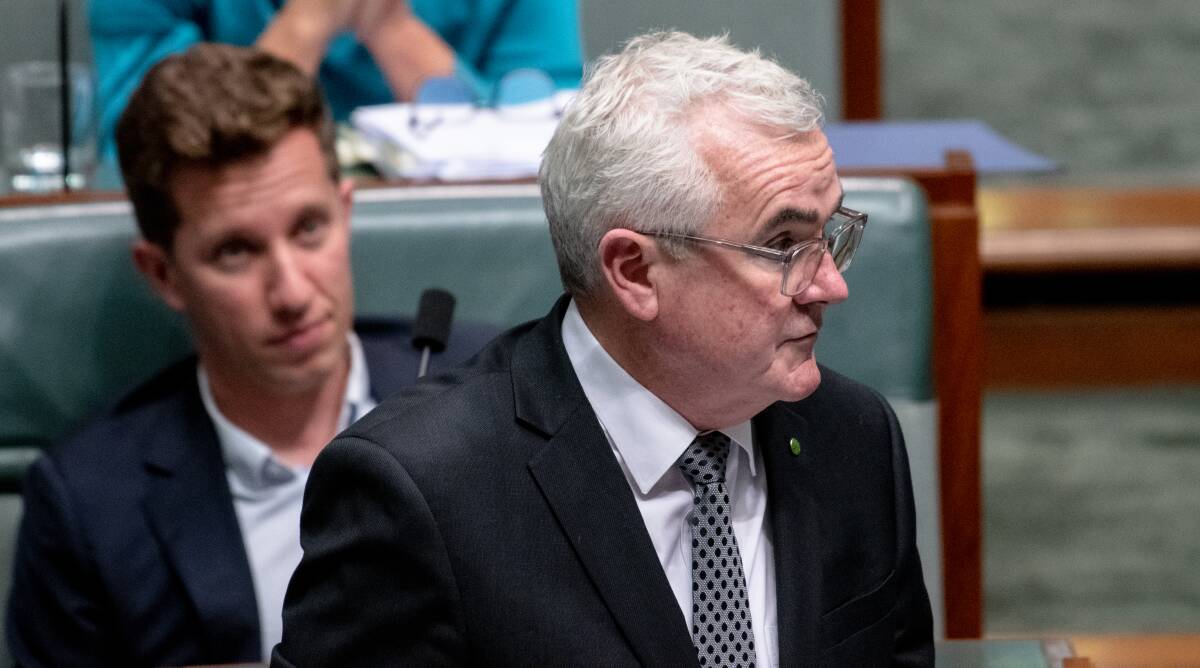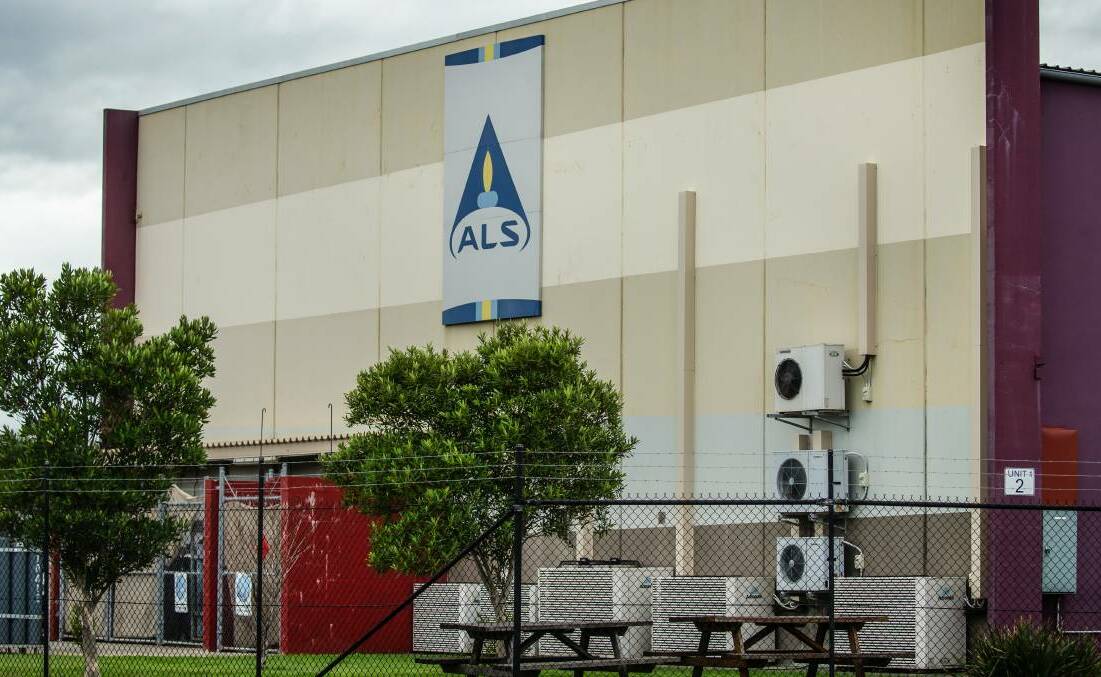
The government has asked for an Australian Securities and Investments Commission briefing after accusations Hunter mine operators Glencore and Peabody used falsified coal test results to boost profits and bribed overseas customer representatives to cover it up.
Independent MP Andrew Wilkie used a speech in Parliament on Monday to call for "at least" a federal parliamentary inquiry into the industry's testing practices.
He said a senior coal industry executive had provided him with thousands of documents which "prove Australian companies have been lying for years about the quality of our coal".
Mr Wilkie named Glencore, which operates nine Hunter mines, and Peabody, which owns Wambo colliery near Singleton, Anglo American, TerraCom, Macquarie bank, auditors Ernst&Young and testing firms ALS and SGS among industry players implicated in the scandal.
He said in a later media conference that employees at the firms were "knowingly involved" in "widespread fraud" to inflate the quality and value of coal shipments.
He said the documents raised questions about Australia citing the quality of its coal as justification for continuing exports.
A spokesperson for Resources Minister Madeleine King said the accusations were "concerning" and the government had sought briefings from ASIC and the Department of Industry.
"The government will look into reports of misleading information about quality of exports," the spokesperson said. "The Australian government is committed to maintaining Australia's reputation as a reliable and competitive supplier of high-quality metallurgical and thermal coal."
ALS called in police in 2020 to investigate its Newcastle lab after revelations it faked results. ASIC investigated but took no action, even though the firm admitted up to half its tests had been doctored over 13 years.

The Newcastle Herald reported in 2020 that falsified coal tests were an "open secret" in the Hunter Valley mining industry.
ALS suspended four senior staff, including three based in Newcastle, after the fake tests came to light. All four left the company soon after.
Geneva-based SGS denied in 2020 that it had been involved in falsifying tests after being accused of doing so in a Federal Circuit Court case brought by a former manager at Queensland miner TerraCom.
Mr Wilkie told Parliament an inquiry might be the only way of shedding light on the industry's "shocking misconduct" after other agencies refused to act.
"The fraud is environmental vandalism and makes all the talk of net-zero emissions by 2050 a fiction," he said.
"It could also be criminal, trashing corporate reputations as well as our national reputation.
"In essence, coal companies operating in Australia are using fraudulent quality reports for their exports and paying bribes to representatives of their overseas customers to keep the whole scam secret.
"And this has allowed them to claim for years that Australian coal is cleaner than it is in order to boost profits and prevent the rejection of shipments at their destination."
He said the misconduct covered exports to Japan, South Korea, China and India among others.
"The misconduct also includes the ALS company, which has already been forced to admit its fraudulent testing to the ASX when it conceded that, and I quote, approximately 45 to 50 per cent of the certificates of analysis were manually amended without justification," he said.
Mr Wilkie said he had evidence SGS also faked tests at a similar rate.
He tabled an SGS report which he said showed a coal sample with a moisture content of 16.7 per cent, "which is pretty damp and won't burn well", had been changed to 15.9 per cent in the final version.
It is not known if the SGS analysis is the same one mentioned in court documents in 2020.
Mr Wilkie said the change had resulted in hundreds of thousands of dollars in extra profits from that "relatively small shipment to Japan".
He alleged Ernst&Young was aware of the industry scams but chose to ignore them because the coal companies were "lucrative".
Mr Wilkie said the executive's allegations had been put to the Australian Federal Police, ASIC, NSW Police, Department of Industry, Science, Energy and Resources and the former government but "not one authority has been willing to act".
"So this time let's ditch the game playing and go straight to an inquiry so the industry can be held accountable for its sins and so Australia can restore its reputation as an honest trading partner," he said.
"And most importantly so we can learn just how dirty the world is and how much more urgent our response to climate change must be."
He said he did not have the resources to "map" the thousands of documents he had been given.
"That's why we need a parliamentary inquiry to scrutinise them properly."
Fellow crossbench MP Allegra Spender said people needed to come clean about coal industry practices.
"Accounting for carbon emissions is critically important for our transition to net-zero," she said on social media.
"We've seen serious questions about the carbon credit system and now evidence that coal miners have falsified records for years."
A Peabody spokesperson said the company "strongly denies" Mr Wilkie's claims.
An Ernst&Young spokesperson said the firm would not comment on matters relating to clients.
The Herald contacted Glencore for comment.
The Australian Conservation Foundation backed Mr Wilkie's push for a parliamentary inquiry.
"The Australian coal industry's reputation is in tatters following these damning revelations," ACF chief executive Kelly O'Shanassy said.
"This should spell the end to Australian politicians, including Prime Minister Albanese, perpetuating the myth that Australian coal is somehow cleaner than coal from elsewhere.
"There's no such thing as cleaner coal, and it's taken a brave whistleblower to reveal the extent of the deceptions coal companies have engaged in to increase their profits and try to hide the true nature of their dirty product."
Ms O'Shanassy said the allegations raised questions about how coal was tested and analysed in Australian laboratories.
"How many Australian coal companies are involved in this scandal?" she said.
"What are the climate implications if more dirty Australian coal is being burned overseas?
"What are the health implications for people in China, India, South Korea and Japan, countries that buy Australian coal under the misapprehension that it burns cleaner than it does?"







